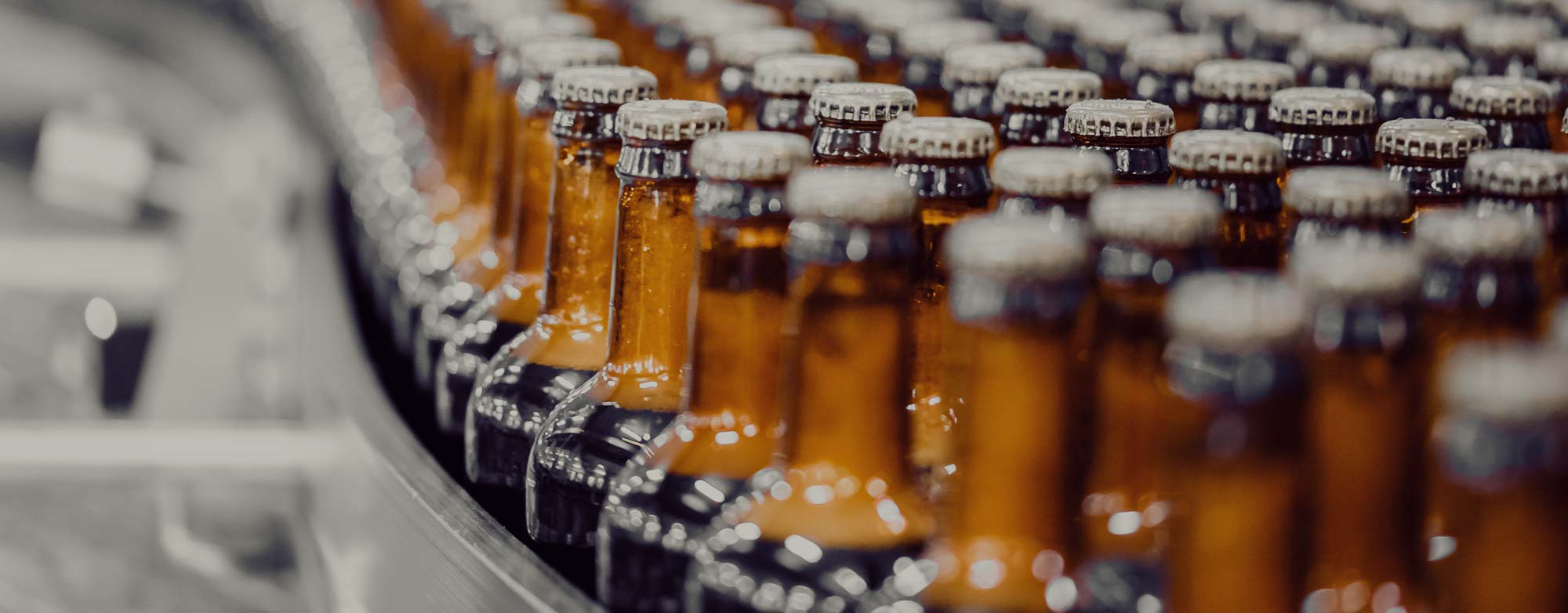
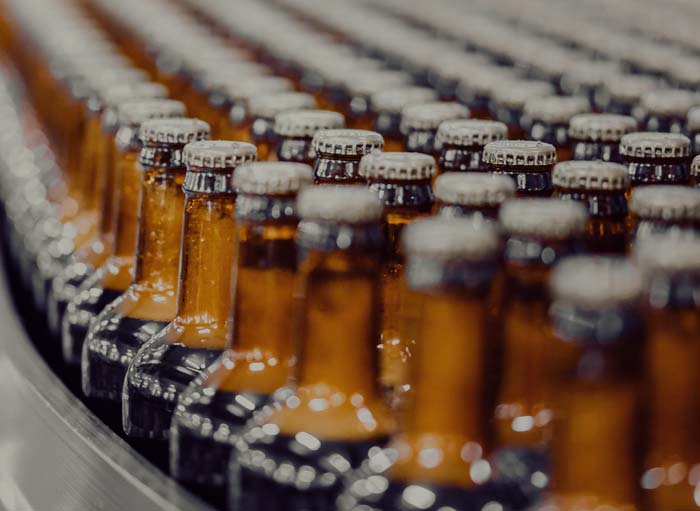


In our daily lives, we are doing what we can to be more responsible for our consumption’s environmental impact. Buying local and supporting local reduces the effects of shipping and haulage. We are recycling more glass and paper from our households. Walking, cycling and using public transport. More and more businesses are also feeling this responsibility as the impact of our behaviour on the planet is evident. Our world is at a tipping point with near-record emissions and the clear and undeniable effects our behaviour has on the weather systems and natural resources worldwide.
Reducing our consumption of manufactured goods has seen businesses and brands adapting and introducing small changes that long term, can make a big difference. Paper straws instead of single use plastic. Compostable takeaway coffee cups and lids, or use your takeaway coffee cup at your favourite coffee shop. Streamlined packaging and more use of recycled materials in shipping. Sales of electric vehicles, including commercial vehicles, continue to grow.
Over the last five years, we’ve seen first hand more and more Scottish Gin producers and brands adopt greener ways of working from reducing waste and sourcing sustainably grown botanicals. Lighter bottles made from recycled glass and using chemical free inks for label printing. Hydro and green energy schemes for powering distilleries. Scottish Gin is moving to be a greener, more sustainable industry.
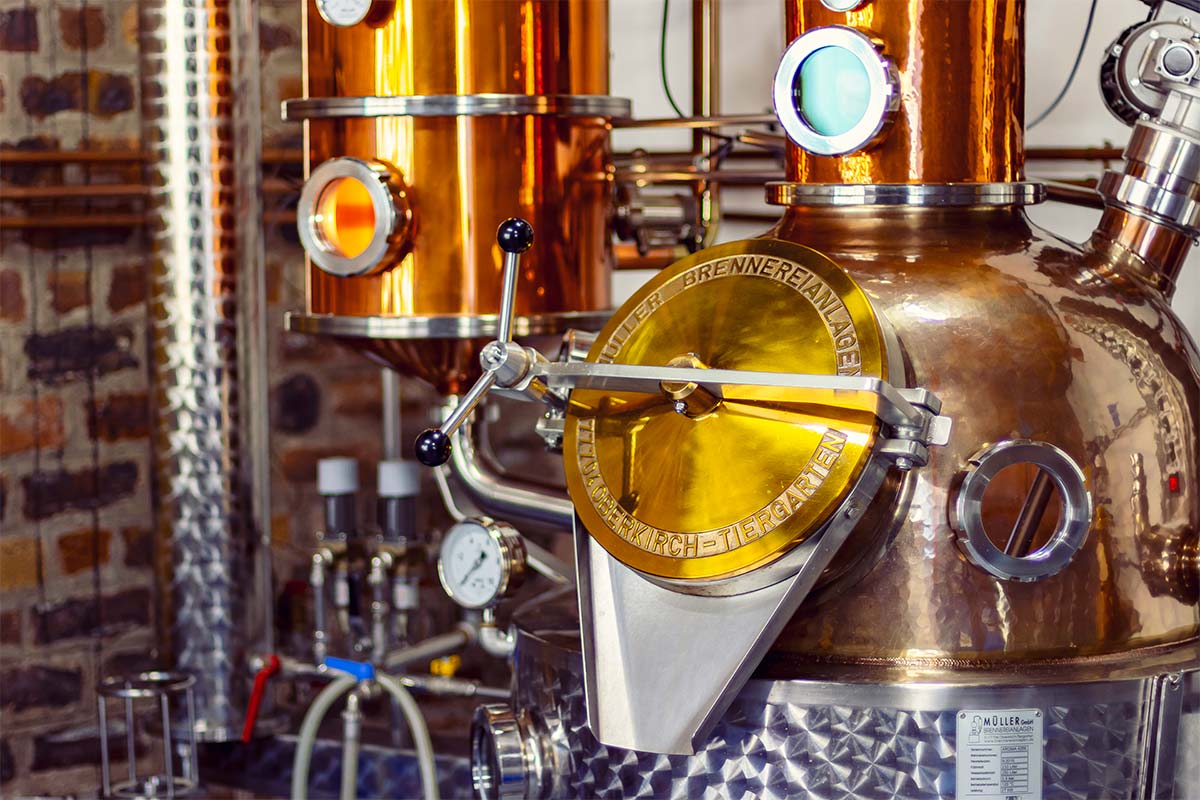 Beinn an Tuirc Distillery in Kintyre installed a hydro system for generating electricity for their distillery and spirits production. (Pic: ©The Gin Cooperative)
Beinn an Tuirc Distillery in Kintyre installed a hydro system for generating electricity for their distillery and spirits production. (Pic: ©The Gin Cooperative)
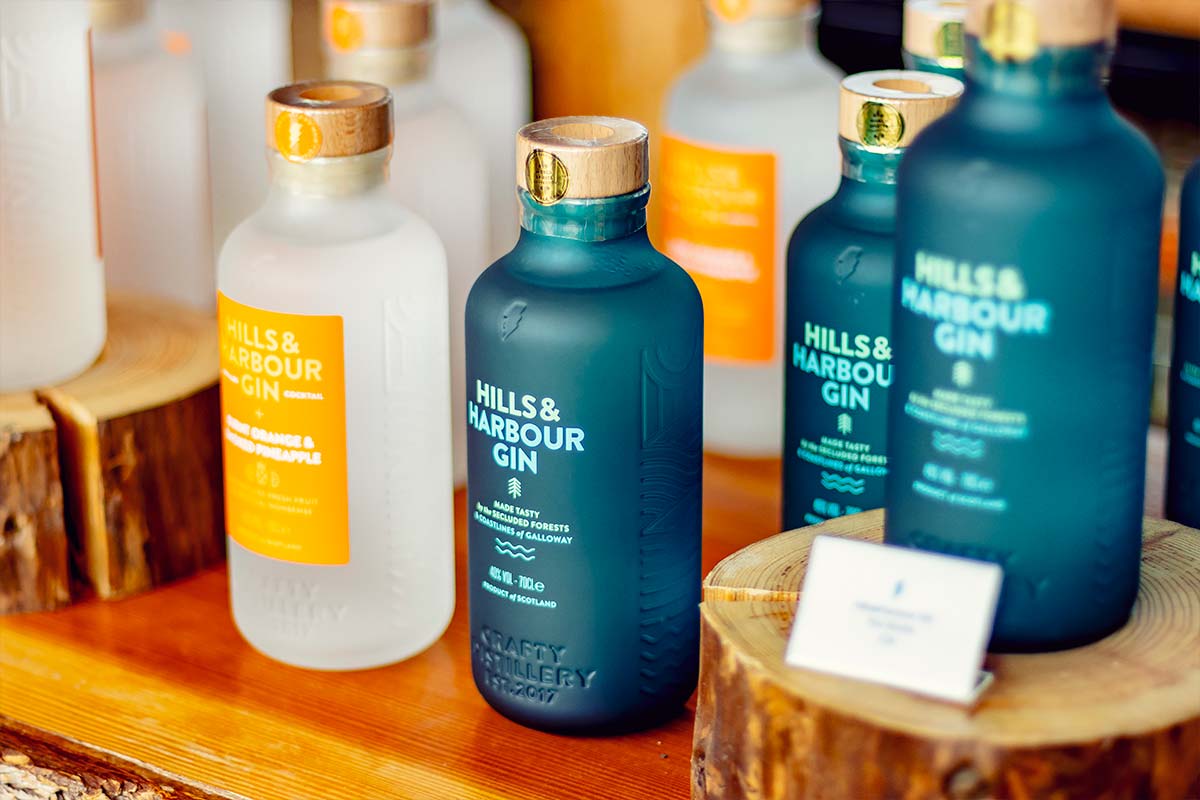 Crafty Distillery’s new Hills & Harbour Gin bottle uses 30% less glass than the old bottle, along with a 100% natural cork stopper from sustainably managed cork trees. (Pic: ©The Gin Cooperative)
Crafty Distillery’s new Hills & Harbour Gin bottle uses 30% less glass than the old bottle, along with a 100% natural cork stopper from sustainably managed cork trees. (Pic: ©The Gin Cooperative)
The ambition to be a greener business and brand also applies to other companies across the spirits supply chain, including tonic makers, retailers and hospitality. As a business working in the Scottish Gin category and being part of the supply chain through our online Scottish Gin shop, we’ve also looked at incorporating greener ways of working and operating our business. From using Flexi-Hex packaging in our shop and our goal of using no plastic packaging for shipping to offsetting our carbon footprint by partnering with Treepoints.
With the approval of the Deposit and Return Scheme for Scotland Regulations 2020 policy, the planned launch of the Deposit Return Scheme (DRS) by the Scottish Government will officially launch on the 16th of August 2023. Scotland will again take another step forward in its ambitions of being a greener country as we aim to meet our Net Zero commitments.
The concept of DRS is nothing new. Many countries have successfully operated deposit return schemes for several years, with the Norway model proving a green success. Less than 1% of single use plastic bottles sold in Norway end up lost in the environment, with 97% of bottles finding their way back into the DRS system and, if possible, they are then recycled, with some going through the process more than fifty times. Manufacture, use, recycle, manufacture, use, recycle. Undoubtedly, when a DRS is carefully thought through and implemented and benefits everyone, it can prove a tremendous green success.
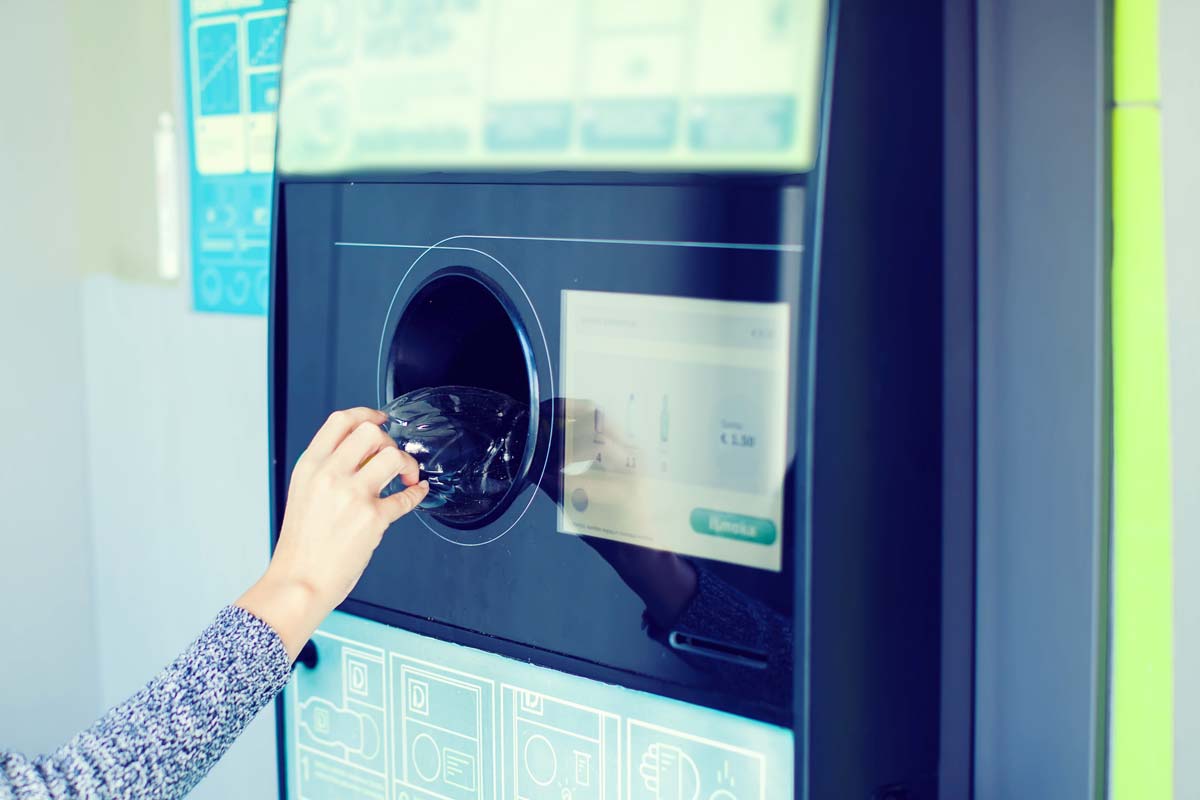 Reverse Vending Machines (RVM) will allow consumers to bring their bottles along and deposit them in exchange for 20p per bottle. (Pic: Used under licence)
Reverse Vending Machines (RVM) will allow consumers to bring their bottles along and deposit them in exchange for 20p per bottle. (Pic: Used under licence)
 The Scottish Government’s Deposit Return Scheme (DRS) is due to go live on the 16th of August 2023. (Pic: Used under licence)
The Scottish Government’s Deposit Return Scheme (DRS) is due to go live on the 16th of August 2023. (Pic: Used under licence)
With just over seven months to go before the Scottish DRS is launched, after the original launch in 2022 was delayed, we’ve taken a closer look at the current framework and available guidance. We’ve looked at the practicalities and what it means for the consumer, retailers, drinks producers and hospitality.
As a business, part of which is online retail, we have a number of concerns about the DRS in its current form. As highlighted in various news stories, there has been growing uncertainty and unease from many businesses. These concerns were recently raised by the letter organised by Whisky consultant, broker and author Blair Bowman. The letter, which was sent to Scottish Greens MSP for Lothian and Co-Leader for the Scottish Greens Lorna Slater, was signed by 520 businesses and industry leaders, calling for a pause and rethink of the current proposed DRS framework.
And although there was a formal response from MSP Lorna Slater, her letter fell short of addressing the concerns of many. The letter states, “Many of your specific concerns about the costs and implementation of the DRS are best raised with Circularity Scotland, and indeed are already being addressed.”
However, even seeking confirmation and clarity on the DRS as this letter suggests, it goes against the current position of the Circularity Scotland FAQ’s. It appears Circularity Scotland is unable to offer advice.
Q: I am not sure how the regulations apply to my business and if I need to register as a return point?
A: Circularity Scotland are unable to advise businesses on the Deposit Return Scheme regulations and how they apply to their business. If you are unsure if your business is required to register as a return point please check SEPA’s FAQ page.
When the scheme administer, who on their website makes mention of, “We represent a combination of drinks producers, trade associations and retailers and work with companies throughout the supply chain – from producers through to the hospitality industry, wholesalers and retailers”, can’t provide clarity to the businesses it says it represents, it somewhat reinforces many justifiable concerns.
However, we understand there has also been an email circulated from Circularity Scotland, which has sought a discussion about the concerns raised in the letter submitted by Blair Bowman. Providing the answers many seek now will build trust and confidence in the DRS and allow the businesses impacted the time they need to make the DRS work for them. Providing answers now will demonstrate that those in charge of the DRS know precisely, down to the finest detail, how the DRS will affect us all.
Circularity Scotland – Scheme Administrator
Circularity Scotland was created to act as the scheme administrator with the input of “Scotland’s major drinks producers, wholesalers and retailers”. A commercial organisation run on a not-for-profit basis, Circularity Scotland will be responsible for the day-to-day running and management of the DRS, including collection and distribution of deposit payments to scheme members.
Circularity Scotland will also collect returned scheme containers, prioritising achieving optimal prices for recycled materials and focusing on the best recycling outcomes. As part of its role, Circularity Scotland will report to Scottish Environment Protection Agency (SEPA).
Although businesses are not required to use Circularity Scotland as their scheme administrator, it’s predicated that most companies will nominate a scheme administrator to help the company fulfil its obligations. Businesses who do opt to work with Circularity Scotland will pay what is said to be “a small fee for each container they sell in Scotland” and “economies of scale mean that this will be vastly less costly than administering their own duties under the scheme.”
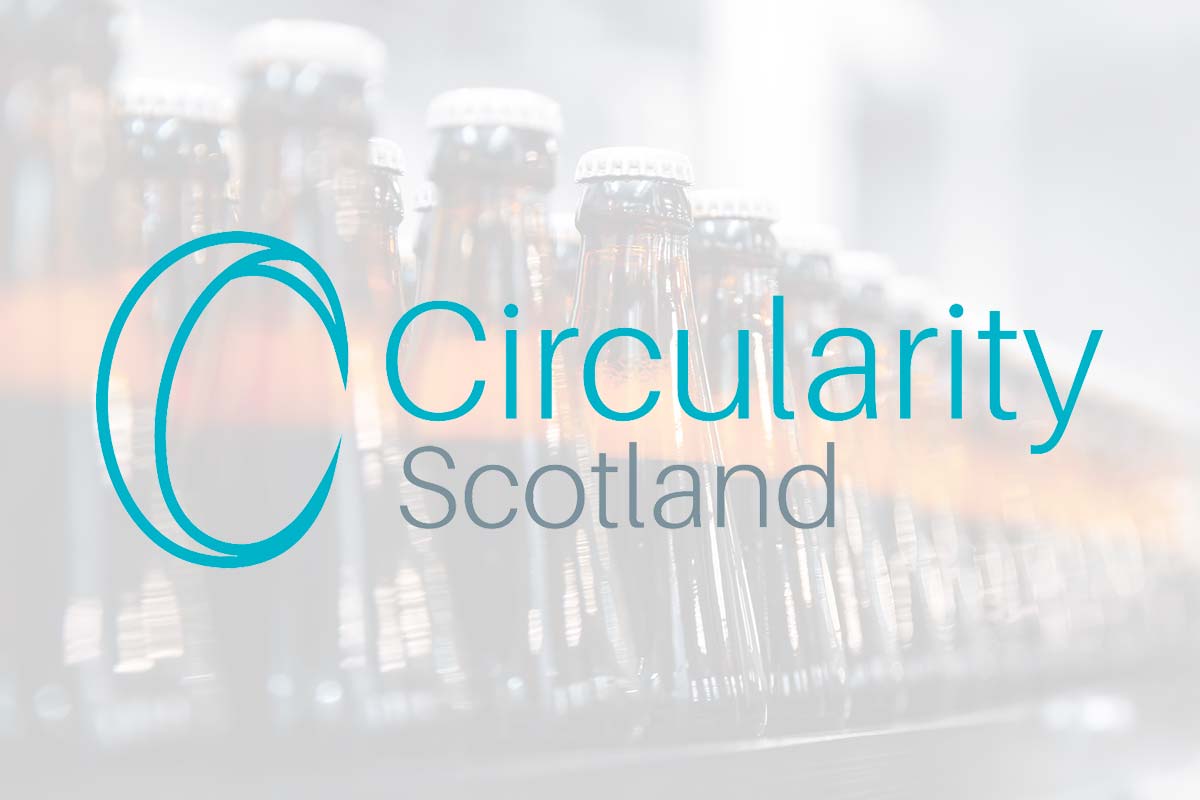 Circularity Scotland, a commercial organisation run on a not-for-profit basis, will act as a Scheme Administrator for the Deposit Return Scheme. (Pic: Courtesy of Circularity Scotland)
Circularity Scotland, a commercial organisation run on a not-for-profit basis, will act as a Scheme Administrator for the Deposit Return Scheme. (Pic: Courtesy of Circularity Scotland)
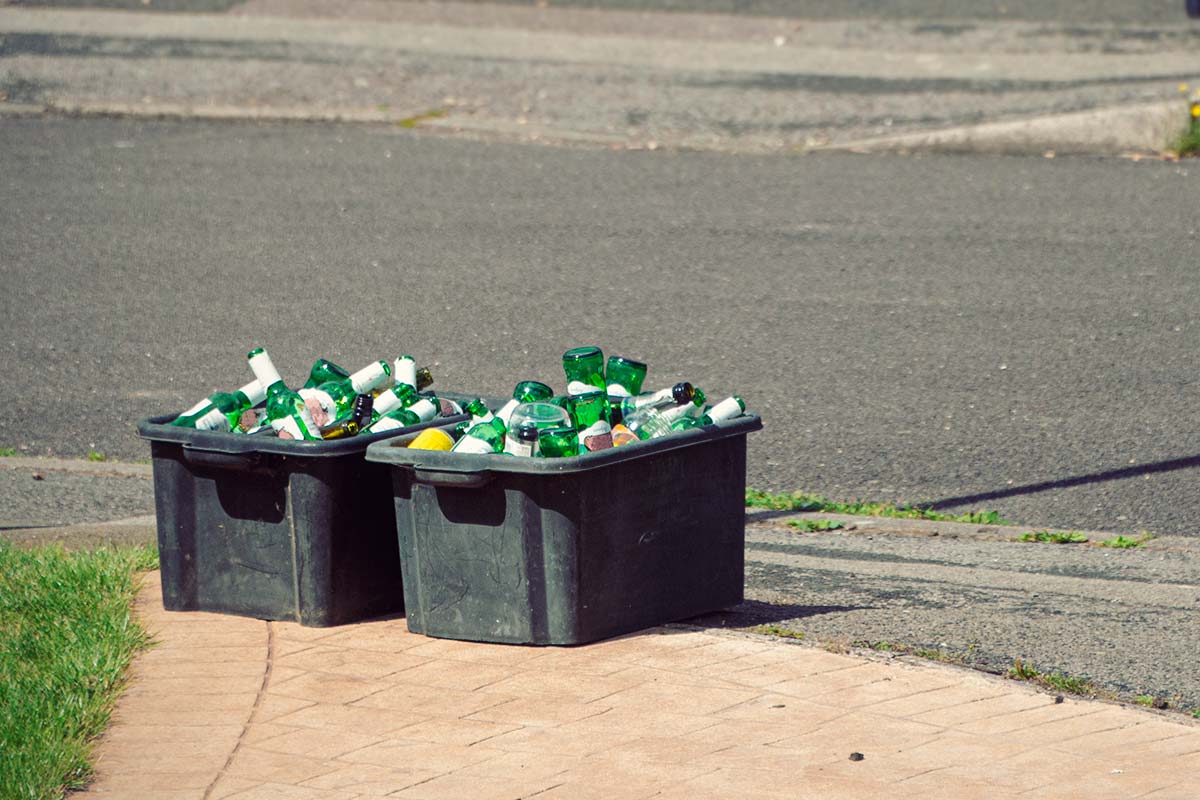 Scheme Administrators will have a number of duties to fulfil including collection of scheme containers. (Pic: Used under licence)
Scheme Administrators will have a number of duties to fulfil including collection of scheme containers. (Pic: Used under licence)
SEPA (Scottish Environment Protection Agency) – Scheme Regulator
SEPA (Scottish Environment Protection Agency) is the regulator for the Scottish Deposit Return Scheme and is responsible for managing the scheme, including registering DRS businesses and audits and inspections of businesses.
Scheme Containers
Single use containers (known as the scheme articles, scheme containers or, once empty, scheme packaging) are defined as made from PET plastic, glass, steel or aluminium sized containers between 50ml and 3 litres. All drinks producers in Scotland that meet this criteria, classed as “the Brand owner”, will have to sign up to be members of the DRS and register their scheme containers.
The scheme in its current form will see any drinks producers outside of Scotland that sell products that meet the ‘scheme container’ criteria in Scotland categorised as an ‘importer’ who will also have to sign up for membership of the DRS. Some exemptions will fall under the Food Hygiene Standards, but most businesses must register and comply with the DRS. So in principle, all ‘scheme containers’ entering Scotland or produced by a company in Scotland will be subject to the DRS.
So how will the Scottish Deposit Return Scheme work?
The principle of the DRS is that drink producers will pay a 20p fee for every scheme container they sell in Scotland to the scheme administrator. Producer sales will typically be direct to consumers, hospitality venues, retailers or wholesale.
If a retailer buys through wholesale, the retailer will pay the wholesaler 20p per scheme container. The retailer will charge the customer the 20p deposit for purchasing a scheme container. The customer gets the 20p deposit back when they return the scheme container to a DRS return point.
The scheme administrator pays the 20p originally paid by the producer to the business operating the DRS return point. Payments to the DRS return point operator are released once the empty scheme containers have been collected and checked.
DRS Return Points
When a consumer purchases a ‘scheme container’ from a retailer, including online retailers or hospitality businesses, for consumption off-premises, the consumer will pay a 20p deposit on top of the RRP of the product. It is then up to the consumer to return the in-tact scheme container to one of the estimated 35,000 official DRS return points. These include retailers, hospitality businesses, drinks producers, and reverse vending machines (RVM).
As a DRS return point, “every return point has to accept every item included in the scheme.” So regardless if you sold the scheme container, if a member of the public hands over a scheme container, you will have to accept it. Refusing to take a scheme container, even though you have never profited from the sale, ordered the item, or have never seen the scheme container before, you will have to accept it under the DRS. You will then have to store it until it can be collected.
Under the current DRS framework, DRS return point operators will be paid a ‘handling fee’ to cover the costs incurred due to extra time, labour costs, storage, and equipment required to make the DRS work. Circularity Scotland pays the fee, calculated annually, to the business operating the DRS return point.
DRS return point operators will be provided with several bags, boxes or bins, which will feature a security tag unique to the operator. Collections will be free, managed, and funded by the nominated Scheme Administrator.
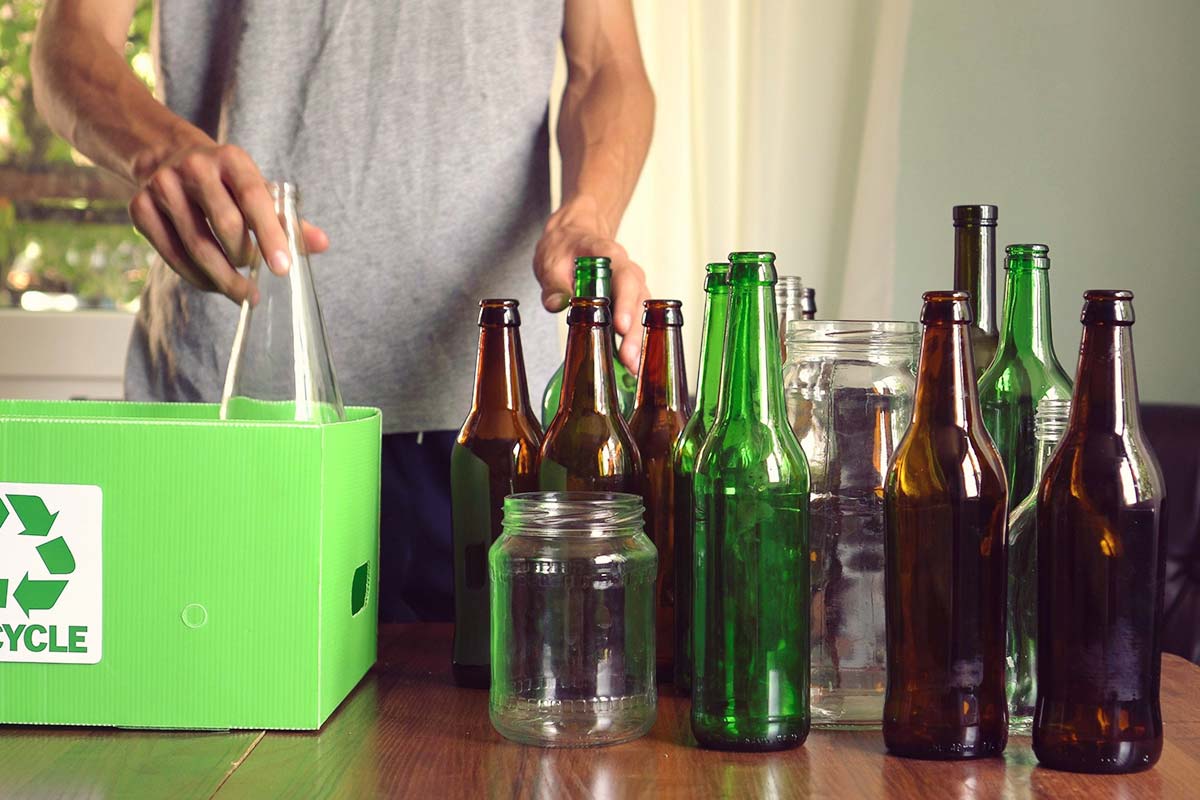 Deposit Return Scheme return points will include retailers, hospitality venues and Reverse Vending Machines (RVM). (Pic: Used under licence)
Deposit Return Scheme return points will include retailers, hospitality venues and Reverse Vending Machines (RVM). (Pic: Used under licence)
 Online retailers will have to register and offer a take back service for collection of empty scheme containers. (Pic: Used under licence)
Online retailers will have to register and offer a take back service for collection of empty scheme containers. (Pic: Used under licence)
For online sales, the online retailer must provide an option for the consumer to return the scheme container to the online retailer. The online retailer can also advise the consumer of an elected DRS return point in the buyer’s local area where the scheme container can be sent or taken.
Once the scheme containers are collected and scanned, they will be tagged and delivered to a processing centre. Once various checks are completed, the Scheme Administrator will process the number of scheme containers and in turn, pay the DRS return point operator.
An ‘app’ that will provide a list of the scheme members and their scheme containers will also be available at the launch of the DRS. We assume the app will offer a complete list of the DRS return points along with several helpful features and information for all the DRS members.
There will also be the opportunity for voluntary DRS return points, operated by people or businesses who do not have a legal requirement to provide one. An example given would be a DRS return point at a hospital. But what if the hospital has a cafe and a number of shops selling scheme containers? Would the hospital not have to have a DRS return point on-site or at least have an obligation to direct members of the public to the nearest DRS return point?
Exemptions
Some businesses may be able to apply for a DRS exemption status. For example, a contract bottler will be exempt, as the responsibility for DRS sits with the producer.
Retailers can apply for an exemption asking not to operate their own DRS return point. If you’re a retailer based in a large shopping centre and can organise and agree with other businesses in the centre, who would also have to be part of the DRS, you would be exempt by jointly creating a voluntary return point. In a food court where numerous hospitality businesses are operating, installing a RVM would cover the individual business’s duties to accept the return of scheme containers.
There might be other exemption criteria if the DRS meant a business would have to break the law in other areas, for example, premises and alcohol licensing or food and hygiene regulations. What the full exemption criteria is hasn’t been announced.
Drinks producers
All drinks producers must comply with the DRS regulations and sign ‘The Producer Agreement’, the contract between drinks producers and the Scheme Administrator Circularity Scotland. The contract will allow Circularity Scotland to act on behalf of the producer to fulfil the producer’s obligations. The agreement will set out what is expected of Circularity Scotland and what is expected of the producer, referred to as “The Brand owner”.
Producers will have to provide Circularity Scotland with annual forecasts for the number of scheme containers the producer will release into the Scottish market. The producer must also provide relevant product codes and register each scheme container with Circularity Scotland. Businesses that import drinks that ship in ‘scheme containers’ will also be classed as producers and must adhere to the DRS framework.
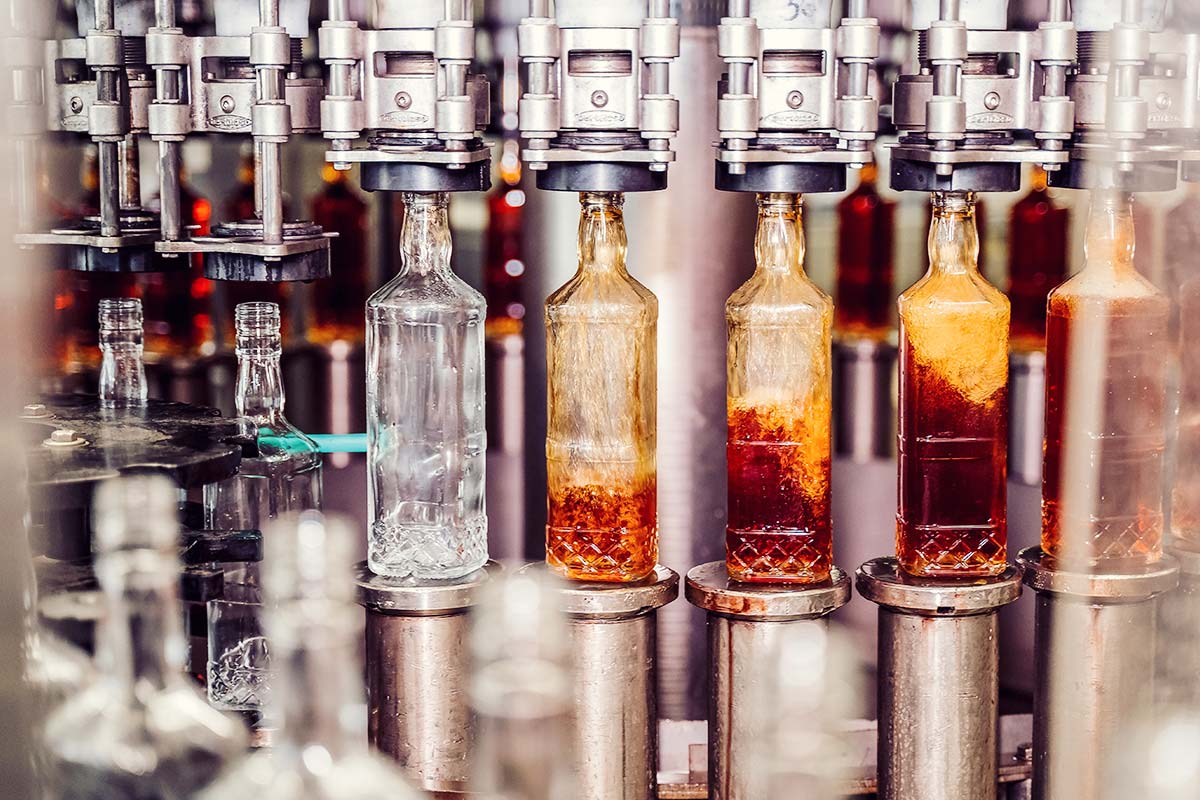 Drinks producers will play a vital role in the Deposit Return Scheme and must comply with the Deposit Return Scheme framework. (Pic: Used under licence)
Drinks producers will play a vital role in the Deposit Return Scheme and must comply with the Deposit Return Scheme framework. (Pic: Used under licence)
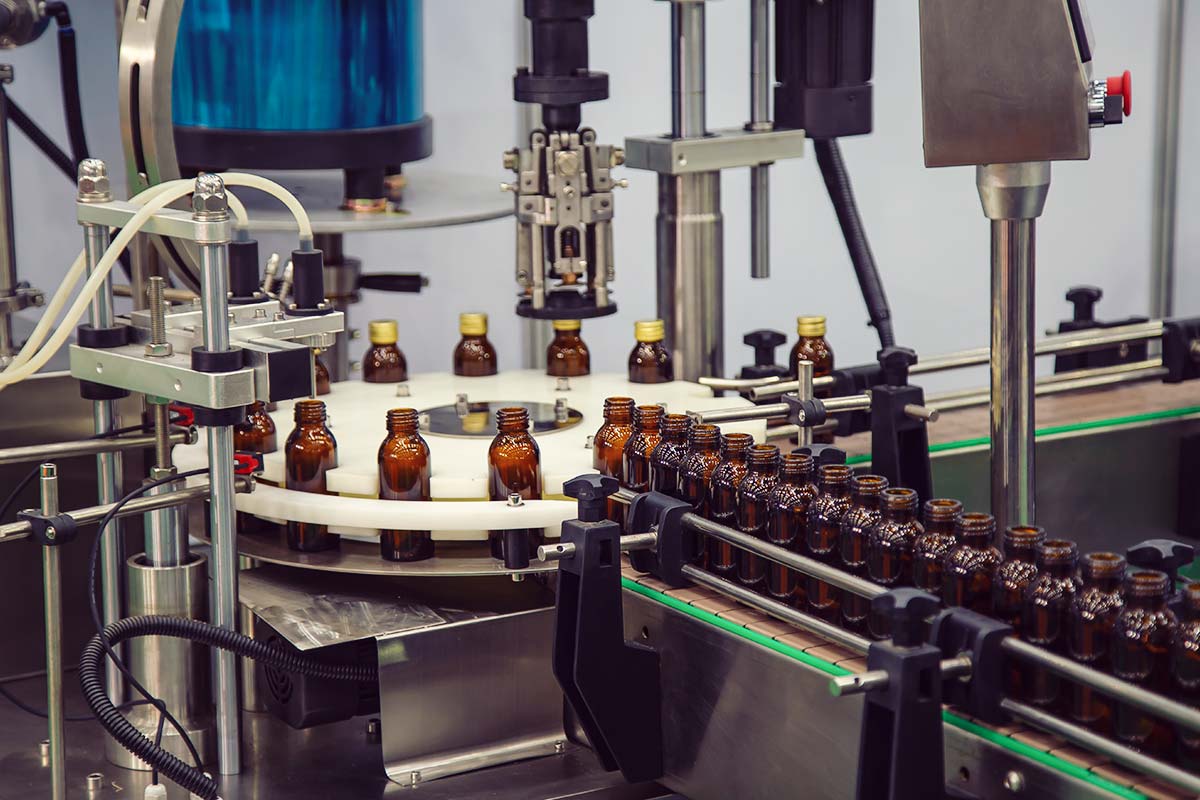 The Deposit Return Scheme will place the immediate financial burden on drinks producers for each scheme container they sell in Scotland. (Pic: Used under licence)
The Deposit Return Scheme will place the immediate financial burden on drinks producers for each scheme container they sell in Scotland. (Pic: Used under licence)
Producers will be charged a ‘producer fee’ on each scheme container released, with different rates for different materials. Fees will be the same for all producers, so for producers using green glass, the fee will be the same. The money generated from the fees will be used to “ensure that the DRS scheme runs smoothly”.
As to what this cost will be, it is still unclear and yet to be confirmed by Circularity Scotland. “We aim to be able to advise producers with an initial view of the likely range of producer fees by Spring 2022, but a definitive figure will be set closer to the time when the scheme goes live. This is due to the complexity of implementing the scheme and variability in the value of recycled materials. The fee will be reviewed annually.”
Concerning container scheme packaging, there is no requirement for amending packaging to reflect that the producer is part of the DRS. It is suggested by Circularity Scotland however that, “creating a new label and barcode will improve the security of the scheme. It also enables you to add a consumer-facing logo to your label – highlighting that your product is in the scheme. For this reason, the producer fee will be higher for those products staying with the existing, UK-wide, label and barcode systems.” We can’t foresee a rush of producers reworking their existing labels, at their own cost, to incorporate a DRS badge.
A number of brewers and tonic producers for example offer multi-pack scheme containers. Will these drinks producers have to charge their customers 20p extra per scheme container in a multi-pack? A twelve pack of tonics, for example, would see an increase of £2.40. A twenty four pack of tonic would increase by £4.80.
Suppose you are a drinks producer that also operates a visitor experience where customers can purchase your products from your visitor’s shop, or you sell your products online. In that case, there will be some cross-over where the framework for retailers and hospitality will apply to your business. You will have to comply with three sets of standards by law.
Online Retailers
A consumer buys a bottle of Scottish Gin from an independent retailer online. To get to this stage, the retailer will have purchased a case or a few cases from the gin producer or from wholesale. For each bottle of gin purchased by the retailer, they will pay a 20p deposit to the supplier. The retailer will charge the customer a 20p DRS deposit on top of the gin RRP (Recommended Retail Price). The online retailer will also have to clarify on their website that there is a 20p deposit and provide an overview of the DRS.
Once the scheme container is shipped to the customer, the online retailer is then responsible for its return. The online retailer can either direct the customer to an official DRS return point or arrange to collect the scheme container from the customer’s doorstep. Where the online retailer has directed the customer to use a DRS return point, the retailer must have an agreement with the business operating the DRS return point.
If the scheme container is returned directly from the consumer to the online retailer, the online retailer is expected to store the scheme container before it is either collected roadside by the scheme administrator or is taken to a local DRS return point.
This example throws up several questions. The online retailer will most likely have to agree on a fee per bottle or monthly payment with their nominated DRS return point. Will there be a cap on what DRS operators can charge businesses who wish to appoint a local DRS return point as the place where all returns from online sales should be sent?
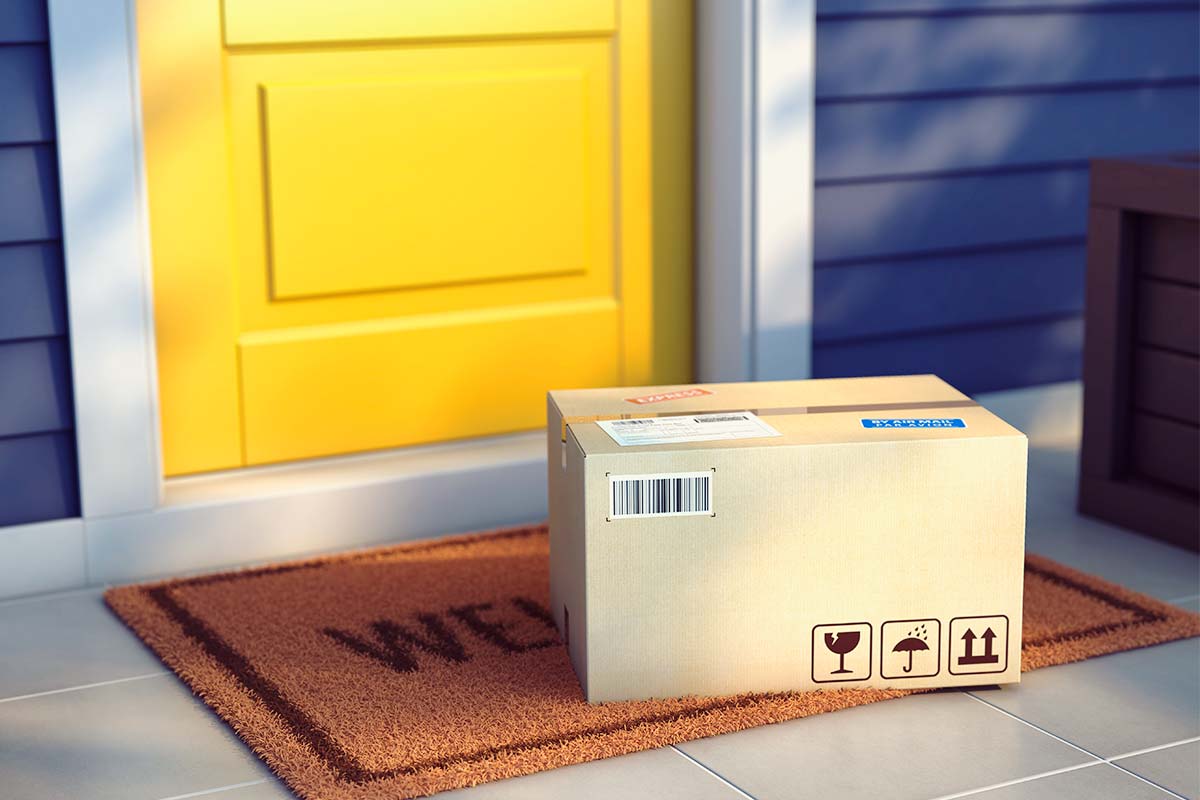 Online retailers or drinks producers who sell through their website may have to organise door step collections with couriers for the safe return of scheme containers. (Pic: Used under licence)
Online retailers or drinks producers who sell through their website may have to organise door step collections with couriers for the safe return of scheme containers. (Pic: Used under licence)
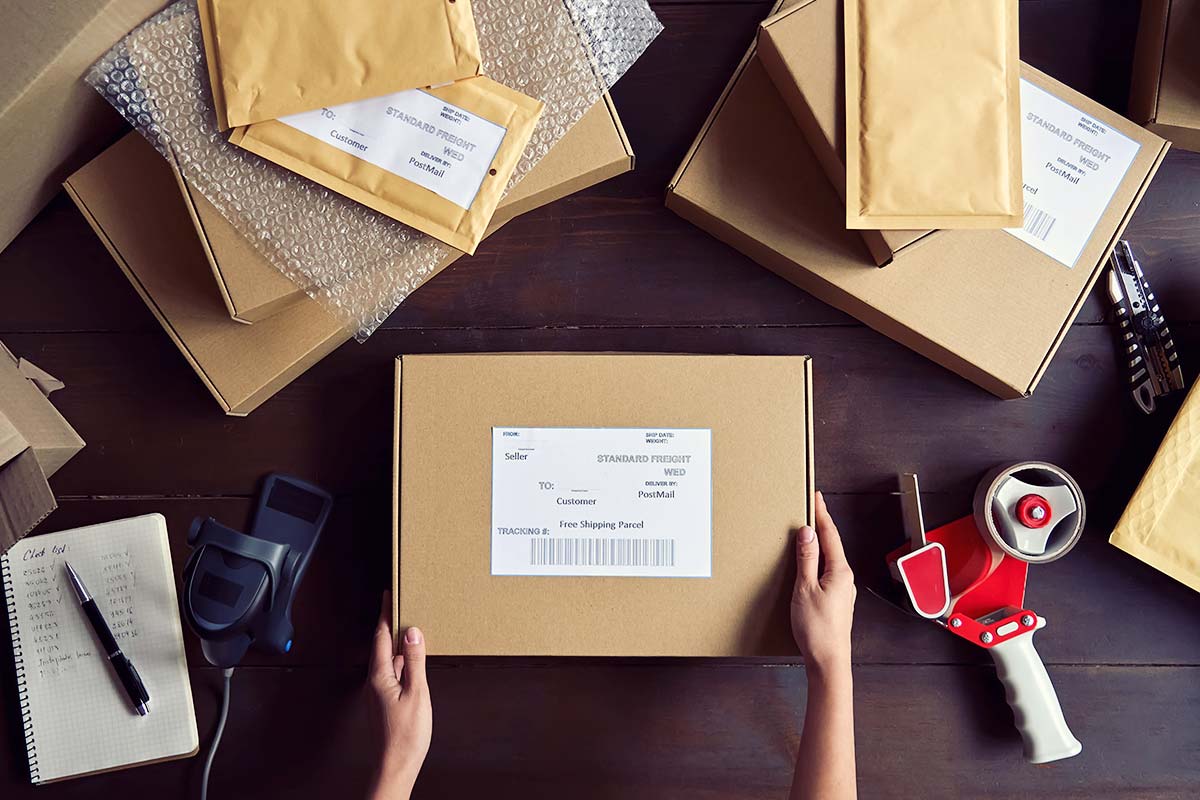 Online retailers may have to provide additional packaging so customers can return empty scheme containers to the retailer, creating twice the amount of cardboard used and doubling the carbon footprint. (Pic: Used under licence)
Online retailers may have to provide additional packaging so customers can return empty scheme containers to the retailer, creating twice the amount of cardboard used and doubling the carbon footprint. (Pic: Used under licence)
Suppose the customer doesn’t have access to a physical DRS return point, for example they live in a remote area or have mobility issues and can’t leave their property. In that case, the online retailer will have to organise a courier to collect the bottle and ship it back to their premises. The online retailer will pay for all these shipping costs and potentially provide the customer with additional packaging and shipping materials so the customer can safely return the empty bottle.
Another example would be a retailer selling 500 products a month to 500 locations across the UK. In that case, the current Scottish DRS expects the online retailer to direct its customers to all appropriate and local DRS return points. This assumes that there will be tens of thousands of DRS return points across the UK for consumers to use. As Scotland is the first country in the UK to implement the DRS, there will be no DRS return points in England, Wales or Northern Ireland, which means all sales that are sent outside of Scotland, will have to be returned to the online retailer or to a DRS return point in Scotland. Would the online retailer be expected to have an agreement in place with all businesses operating the DRS return points?
Potentially the online retailer will have to organise the return of 500 empty bottles from 500 addresses across the UK and then safely store 500 empty, dirty bottles on their premises. This not only poses a massive health and safety hazard with broken glass and the spread of potential illnesses, but the current plans for online retailers would also double the carbon footprint of each sale.
Under the current framework, when an online retailer sends a scheme container to a customer, they will have to inform the customer that they have the right to return their empty scheme container to a local DRS return point (only applicable in Scotland) or directly back to them, the online retailer. This potentially involves providing additional packaging so the customer can return the scheme container, creating more waste and doubling the carbon footprint for each scheme container, which surely goes against the very principles of the DRS. And because of these increased costs, retailers will have to burden the public with the increases. With the current cost of living crisis, consumers shouldn’t be punished, especially when buy-in from the public will be key to the DRS. In the current economic climate, small independent business surely need as much support as they can from the consumer. Yet, it is small independent businesses that will feel the financial burden the most.
Some online retailers may only hold a warehousing and distribution licence for the sale of alcohol. It means no on-site sales of alcohol to members of the public. If a member of the public set foot on the premises with an open, empty container, the licence holder could be in breach of their licence.
Many online retail businesses are operated from home. For an online retailer who keeps and distributes stock from another location, because the point of the sale is the person’s home, does it mean that person will have to accept scheme containers at their home address?
Many online retail businesses will only act as an agent for drinks producers, simply processing the transaction and getting the producer to fulfil the order, generating a commission for each sale. Under this scenario, the place from where the order is shipped is responsible for fulfilling the DRS requirements.
Based on the current framework, online sales will be severely impacted with many additional costs incurred trying to manage the scheme and remain compliant. What should be a simple process for an online retailer of sending a customer a product, has suddenly become a massive financial burden and created an unmeasurable amount of additional paperwork, admin and potential waste. For small businesses, many will simply not be able to accommodate the different requirements of the DRS.
High street retailers
Many physical shops will also sell online so in terms of managing the scheme many of the complexities and issues facing online sales will be felt two fold. Regardless if a business has a high street shop or sells exclusively online, all retailers will have to offer its customers a DRS return point, either on-site at their shop or via a nominated DRS return point.
Once again, physical shops, which include distilleries with shops, will have to offer a DRS return point service. They will be able to nominate themselves as the official DRS return point for scheme containers that have been purchased from their shop or online, and/or will have to make arrangements with other DRS return points.
Retailers will also have to display clear point of sale material, so customers understand that each of the scheme containers sold carries a 20p deposit. Retailers will also have to clarify to the customer the return process for returning the scheme container and how the customer can get their deposit back.
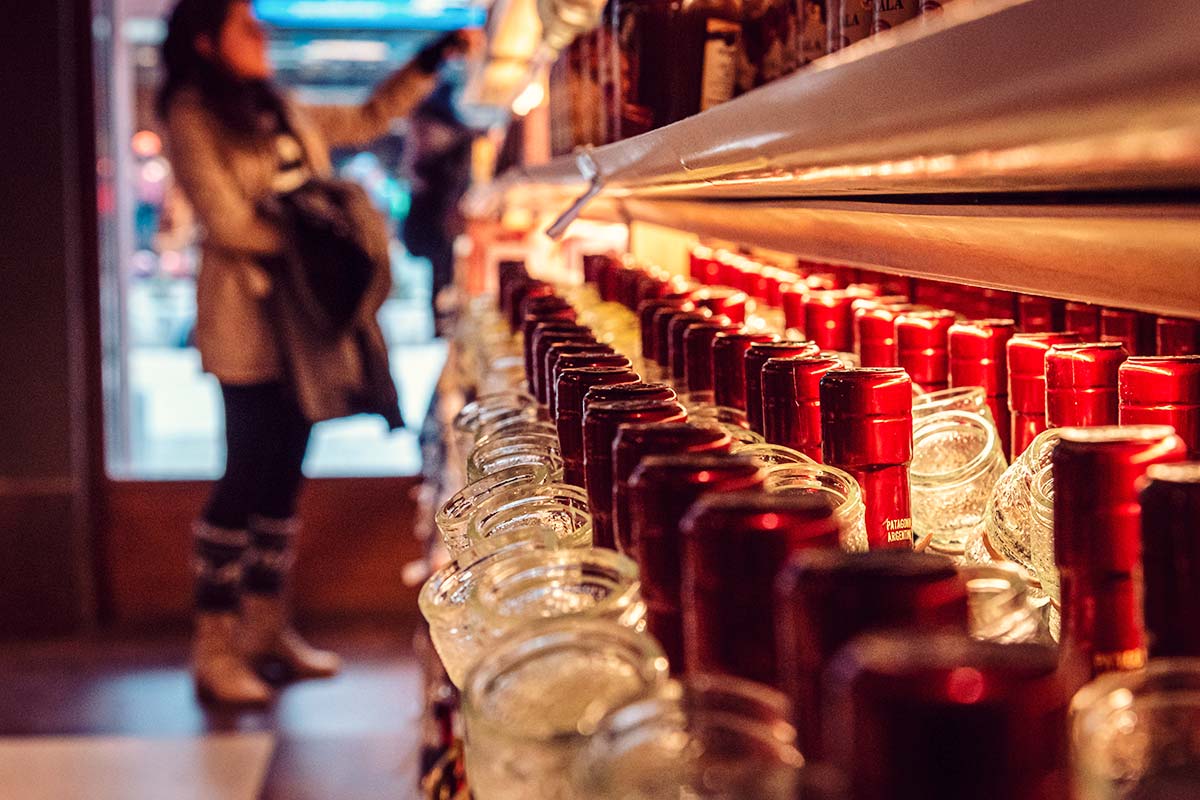 Retailers who are registered as offering DRS return points will have to accept all scheme containers, including those they never sold. (Pic: ©The Gin Cooperative)
Retailers who are registered as offering DRS return points will have to accept all scheme containers, including those they never sold. (Pic: ©The Gin Cooperative)
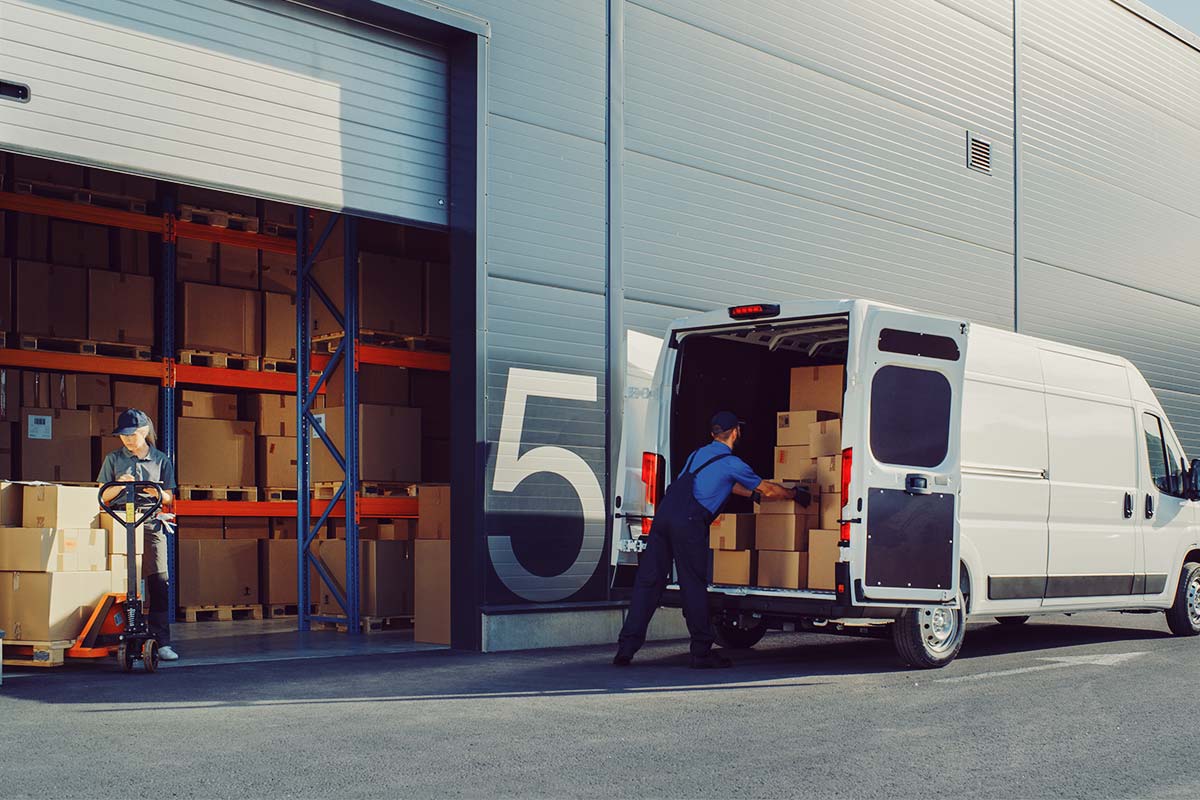 Importers of drinks into Scotland will be classed as ‘producers’ and will have to register as part of the Deposit Return Scheme. (Pic: Used under licence)
Importers of drinks into Scotland will be classed as ‘producers’ and will have to register as part of the Deposit Return Scheme. (Pic: Used under licence)
Retailers can install a reverse vending machine in their premises where scheme containers purchased from the retailer can be returned. The retailer could also opt to be an official DRS return point for other businesses in their local area and charge these other businesses a fee for processing their scheme containers.
Many small independent retailers operate small retail units and premises, often able to accommodate stock, a small office and little else. Having to store returned Scheme Containers or install an RVM will eat up valuable retail space and, for many, will not work in their shop footprint.
For retailers based in remote parts of the Highlands or any of the Scottish Islands who sell to tourists passing through their area, there are several issues the DRS could potentially cause. How will it work if a tourist purchases a scheme container and takes it home for example, to America or Japan? Is the retailer expected to organise the shipping of the scheme container from another country? Causing a massive carbon footprint for shipping and additional layers of paperwork, and not forgetting costly shipping costs.
Logistics and shipping to island communities and businesses poses an extra layer of potential challenges for DRS members. For example, will island-based retailers be expected to accept a returned scheme container from the UK mainland? A process that would see an empty container shipped from mainland Scotland to the island, only for the retailer to process and store the scheme container before it is collected and shipped once again off the island back to the mainland for processing.
The burden of processing the 20p deposit for every container cannot be overlooked. For example, most online retailers and sales go through a payment gateway such as Stripe. Retailers pay a fee for every transaction (sales and refunds), currently around 1.4% of the transaction + 20p. Refunding the 20p deposit per container to customers would incur an additional transaction fee plus 20p. Presumably this additional cost would have to be passed to the consumer again? When you consider every 20p refund will have to be consolidated and accounted for in VAT returns and end of year accounts, these additional transactions will place a very much unwanted additional layer of admin and time and resources needed to ensure the retailer meets its DRS requirements.
Hospitality
Hospitality businesses that sell ‘scheme containers’ for consumption on-site only can operate what is being called a ‘closed loop system’. The hospitality business doesn’t have to charge the customer the 20p deposit but instead can opt to recover the 20p from their wholesale partner or the producer of the product. Under the ‘closed loop system,’ the hospitality business doesn’t have to offer a public return point.
If the hospitality business sells ‘scheme containers’ for consumption off-site (i.e. to take home), it will be classed as a retailer. It means they too will be bound by the same process as retailers and must adhere to the framework. Hospitality businesses will also have to advertise the deposit cost separately from the purchase price. This might be on a menu or at point of sale.
The bar will have to charge the customer 20p on top of the price for the bottle for consumption off-premises. The customer can then return the empty bottle to the return point on the premises and receive their 20p deposit. Where ‘scheme containers’ are sold for consumption off-premises, the hospitality business must also set-up and register as a DRS return point and must accept any suitable scheme containers from members of the public, even if they were not originally sold by the hospitality business, and pay the 20p deposit to the person handing over the scheme container. Potentially hospitality businesses might find themselves queued out the door. Not with paying customers, but with members of the public waiting to return their scheme containers, disrupting service, creating additional work and potentially ruining the atmosphere.
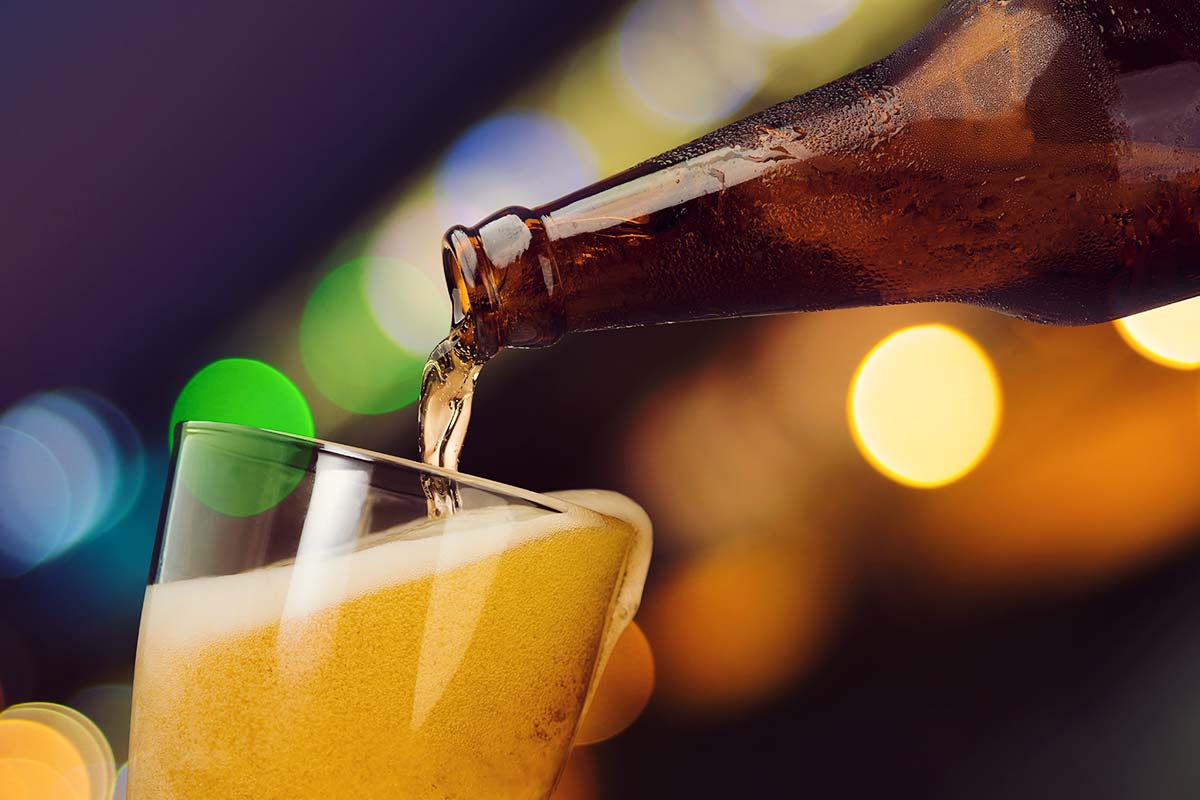 Hospitality businesses who sell scheme containers for consumption off-site will be classed as retailers. (Pic: Used under licence)
Hospitality businesses who sell scheme containers for consumption off-site will be classed as retailers. (Pic: Used under licence)
 Customers buying drinks for consumption on-site at a hospitality venue will not have to pay the 20p deposit, as long as the venue can demonstrate its ‘closed loop’ system. (Pic: Used under licence)
Customers buying drinks for consumption on-site at a hospitality venue will not have to pay the 20p deposit, as long as the venue can demonstrate its ‘closed loop’ system. (Pic: Used under licence)
Going forward
Now is the time for the Scottish Government, Circularity Scotland and SEPA to stop and listen to the businesses and brands that have highlighted their concerns that the current DRS is not fit for purpose with the one size fits all approach of the scheme. Along with the many questions yet to be answered… What if there is a conflict between the framework of the scheme and for example, breaching a law surrounding a premises licence? Which takes precedence? Will online retailers really be expected to organise 1000’s of door step collections of empty Scheme Containers from customers across the UK each year?
There is a staggering lack of answers and information on the real-world application of the DRS and how members will be involved. The DRS needs the confidence of all the businesses involved, not just the stakeholders backing Circularity Scotland, to succeed from launch. And unfortunately, as others have suggested in our discussions, “once again, it feels like small drinks producers and small businesses are having to absorb the same costs as the big boys, but we don’t have the multi-million-pound budgets to absorb all the additional costs.”
For many of Scotland’s drinks producers, their relationships with their local, and primarily small family based retailers, are vital to their success. Not every drink brand is available in the supermarket. For example, many small Scottish Gin producers routes to market are via their online shop or working with local retailers. These vital routes to markets will become more complicated and, in turn, costly for everyone at the launch of the DRS.
Thousands of small businesses will be involved with the DRS. Many of these businesses have already seen massive cost increases across their business operations. Most have managed to survive the last few years under callous trading conditions. And yet as far we know, no formal funding will be provided to support companies implementing or transitioning to the new DRS at launch. Once in place and operating, there will be a handling fee paid to the DRS return point operators but how long this will take is unclear.
The DRS is a massive moment in Scotland’s journey to a greener country, and there is a lot to be optimistic about. In principle, the scheme has been setup to encourage and incentivise consumers to recycle containers but we believe there are so many alternative ways this can be done, without financially, logistically and administratively burdening the producer and everyone in the supply chain.
DRS can be a success. As highlighted, many countries have been operating DRS for many years and as a result DRS has proven its value. But many countries have also had many years for the DRS to become part of everyday life. We want nothing more than to see the DRS become a success for Scotland and all the businesses that will be involved. Another milestone in Scotland’s journey to becoming a greener country populated by a more environmentally aware and responsible society. But the companies forming the foundations of the DRS need answers. And they need answers now.
Caveat about this article
This article is based on ‘our’ current understanding and interpretation of the DRS framework referencing the information currently available. In no way is this article politically motivated or intended to belittle or undermine the principles of the DRS or any of the businesses, groups or individuals mentioned.
What it aims to do is highlight some of the examples of where we believe there will be issues and there is room for improvement. We understand this article raises more questions than provides solutions or definitive answers but that is fundamentally the concern of the businesses who are expected to operate as part of the DRS. Our interpretation of the guidance may be wrong and if so we will amend to reflect the correct guidance. But once again writing this article, which we originally started in 2021 and had to stop as there was so little to go on with the DRS framework, reinforces why clarity and real world answers of just how the DRS will work are required. We hope this article will create further talking points in the DRS discussion and we welcome all feedback including any public or private correspondence.
For the very latest news about the DRS please visit the Circularity Scotland website here or the SEPA website here.
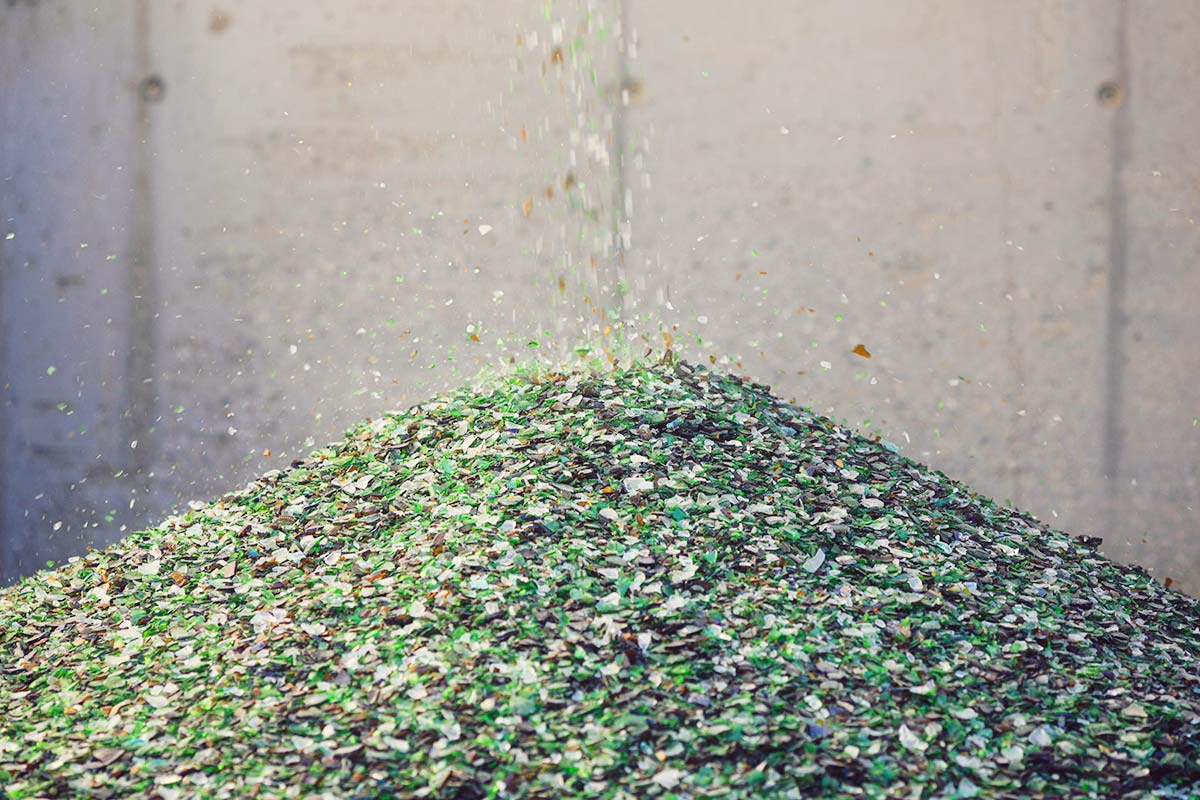

You can learn more about the many great Scottish Gins by visiting the links below.